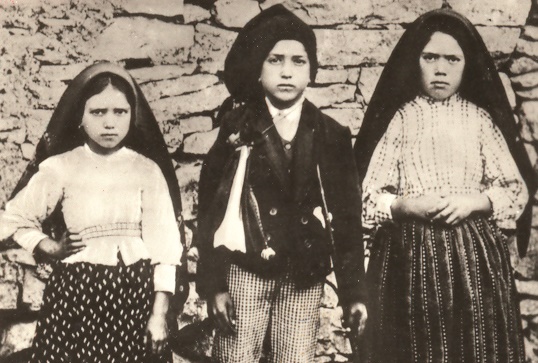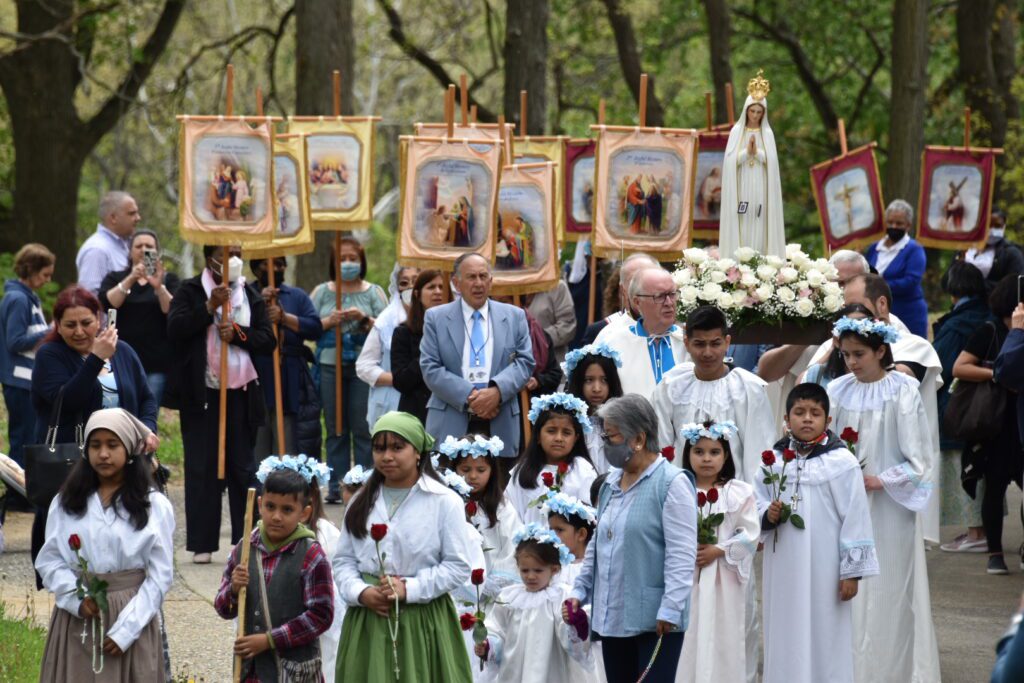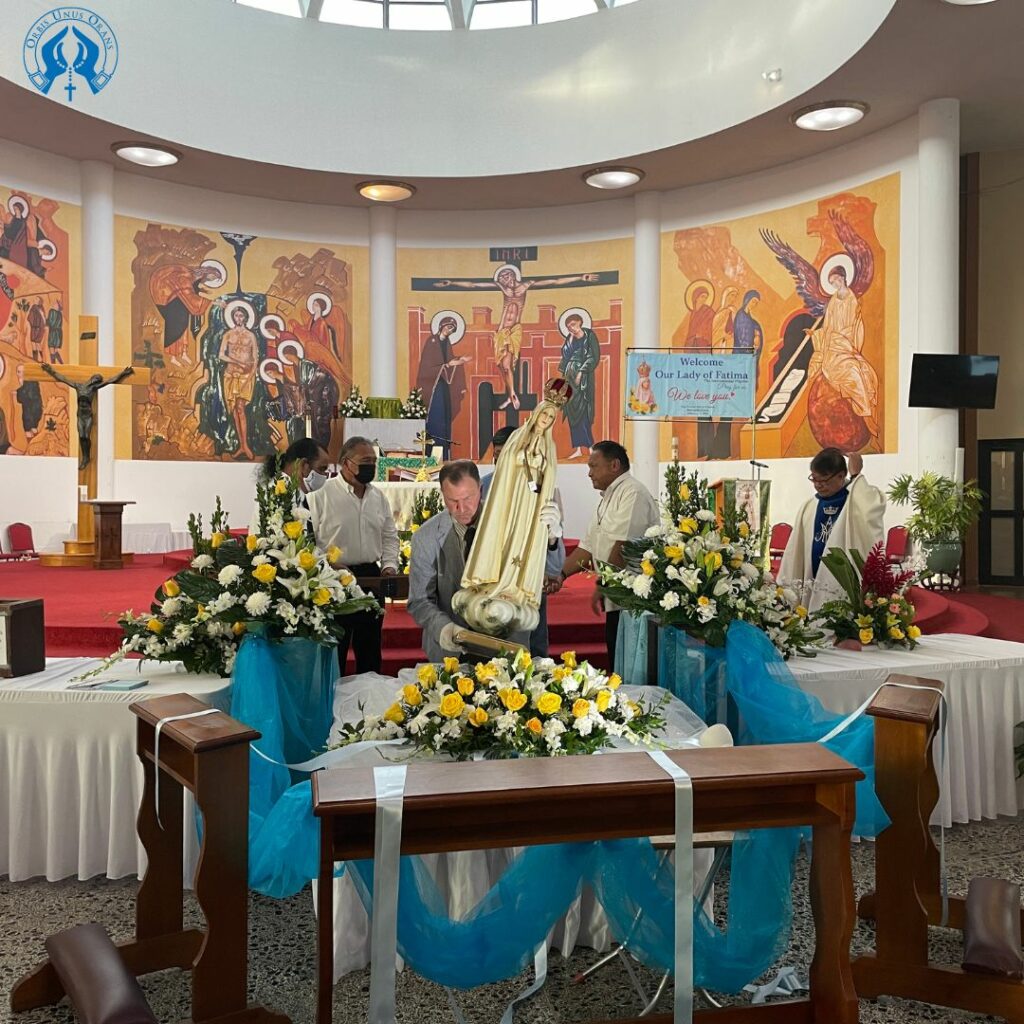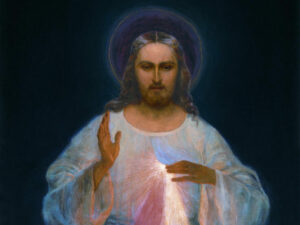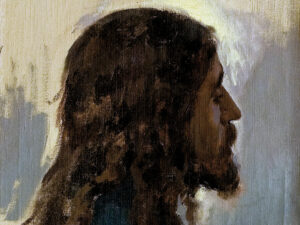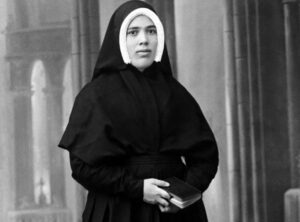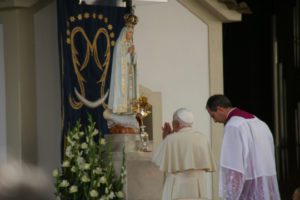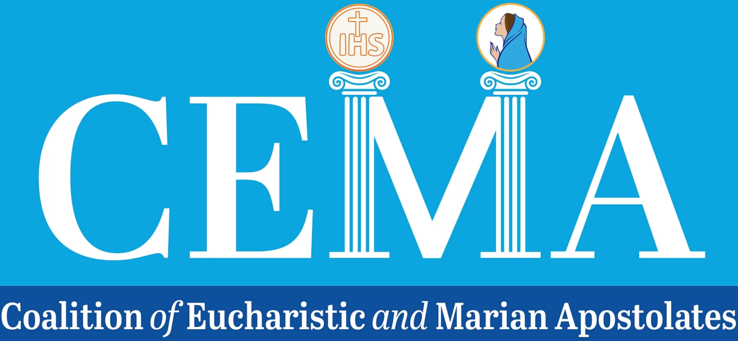

By Barb Ernster
More than a decade ago, an idea was floated to Origin Entertainment by a friend of Mel Gibson to do a motion picture on the story of Fatima. Origin, a film and television production company based in Hermosa Beach, California, was founded by James Volk (chairman) and Dick Lyles (CEO). Their vision was to offer transformative entertainment that inspires audiences to make a better world.
“We wanted to make movies about the good, the true and the beautiful, and about true heroism,” said Lyles. “Gibson told his friend, ‘If you want to make a movie about Fatima, talk to these guys.’”
The timing was perfect for Origin, which had just clarified its vision for movie-making. After several script re-writes and plenty of obstacles, including COVID-19, that seem to come with the territory when spreading the message of Fatima, the movie is opening August 28, 2020 in theatres and on-demand nationwide by Picturehouse, which also distributed The Passion of the Christ. Originally set for April 24, the timing for its big-screen debut appears to be divinely-inspired—when the world desperately needs a message of peace.
Lyles was attracted to the story of Fatima because of its profound effect on the events of the 20th century. Like many Catholics, he grew up with the story and saw the 1952 Warner Bros. feature film The Miracle of Our Lady of Fatima, one of the best-selling classics of all time. He had also visited the Shrine in Fatima. And while re-telling the Fatima apparitions and all that unfolded after could fill an eight-hour miniseries, a motion picture film is much easier to sell to a broad-based audience. Asserting that this is not a story about religion, Lyles said their goal was to help people from all backgrounds experience on a very human level what really happened at Fatima and bring life to the story and the message for the 21st century.


“The story has all the makings of miniseries; set against a civil war in Portugal, a world war raging in Europe and the Portuguese nationalist republicans taking over the country and persecuting the Church because of fear that the clergy would side with the deposed monarchy,” he noted. “Three months before the first apparition, the priest in a neighboring parish was dragged out of the church and beaten almost to death. So we wanted to show that there were legitimate reasons for priests and the family to be concerned about what was happening and the repercussions, given the political climate of the day. You need to think about what really happened there in a very pragmatic way.”
A MESSAGE OF PEACE
Producer Natasha Howes was brought into the project in 2015, after having produced the film The 13th Day. As the team pondered the objectives for the movie, they explored the meaning and message of Fatima, how it has developed over the last 100 years and its relevancy for the contemporary world in the next 100 years. One of the key messages that everyone can relate to today is the message of peace, said Howes.
“As I keep going over what Our Lady said in each of those apparitions, that message of peace resonates so powerfully and strongly with me. For a world that is under spiritual attack and wars are being fought on multiple levels, particularly spiritual wars, it’s a message that is very powerful for young people today who look at an older world that they’re stepping into with a sense of hope for what the future looks like,” she said.
Howes asked Stephanie Gil (14), who plays the role of young Lucia, if she was given an opportunity to bring a message to the world today, what would it be? Gil answered her: “World peace! All of my generation, that’s what we hunger for; that’s what we want more than anything, to actually live our lives in peace and love.”
“It’s such an incredibly powerful message to tell new generations, that there was actually a message of peace, delivered in 1917, from heaven, from the Blessed Mother,” said Howes.
LUCIA IS THE KEY TO THE MESSAGE
Howes has spent more than 13 years researching Fatima and visits the shrine in Portugal several times a year. Fatima has become a deep devotion and passion for her. She is always drawn to Lucia, because the story is told through her point of view.
“It’s always been her memoirs that I go back to, her experiences as she relates to Jacinta and Francisco, but also her relationship with all the other key characters, and of course, the Blessed Mother,” she said. “Her role is the key conduit for this message from heaven.”


The movie portrays her often-tenuous relationship with her mother (Lùcia Moniz), strained dealings with the local clergy and the sufferings endured from the mocking villagers. The human condition is acutely present throughout the film, and one can palpably feel the internal struggle that Lucia endured through Gil’s acting. There are tense moments when Lucia, dealing with so much opposition, stands strong in her unwavering belief that the beautiful Lady did, indeed, appear. And heartwarming moments when strangers stand with her in faith, despite opening themselves to the same mockery and persecution. Or when her unbelieving mother challenges neighbors who would dare to bully a child.
One of the beautiful aspects for Gil was to be a witness to these experiences as she was acting the parts, said Howes. Gil pondered deeply what it would have been like to talk to the Blessed Mother or be immersed in the light that streamed from her hands, and took that experience to the screen. By the end of the movie, it is through the joys and sorrows of 10-year-old Lucia that one is moved to listen to the heavenly Mother.
MOVIE INDUCES SELF-REFLECTION


Photo Credit: Armanda Claro ©2020 PICTUREHOUSE. ALL RIGHTS RESERVED.
Lyles was particularly drawn to the scenes of an adult Sister Lucia (Sônia Braga) who is interviewed by the unbelieving Professor Nichols (Harvey Keitel), who cannot believe in miracles. The film opens with the professor going to meet her at the convent in Coimbra, Portugal. As the story unfolds, the film reverts to the interview, a mechanism used to raise issues that skeptics might have without interrupting the flow of the movie. The conversation between them is drawn from actual interviews Sister Lucia had with a number of people in her later years.
When Nichols asks the question, “Why do you think she appeared to you and Jacinta and Francisco”—three impoverished, illiterate children in the middle of nowhere? Sister Lucia answers, “Because it was necessary. The world needed to hear a message of peace.”
“In our narcissistic society,” said Lyles, “most people would answer that question ‘I, I, I.’ But she so simply, succinctly and humbly puts everything into perspective.”
At the end of the movie, Nichols asks her, “Do you have any regrets?” Sister Lucia answers, “My only regret is that I haven’t done enough.”
“Her answer is a challenge to everyone,” said Lyles. “Have we done enough to please God and the Blessed Mother? The answer from most of us is we can do more. Early in the movie, I reflected on the question and realized that if this really happened, then why am I not praying the Rosary every day? So now my wife and I do that every day. It’s given us a much deeper look at sin and what it means to not insult the Lord, and the importance of getting this message of peace out to the world.”


Photo Credit: Armanda Claro ©2020 PICTUREHOUSE. ALL RIGHTS RESERVED.
Another key theme is Lucia’s relationship to her mother, Maria. “Quite often she is demonized in her representation. We know that she had a harsh love,” said Howes, “but we understand that throughout her life she was so set in her believe that her daughter and family could never be so blessed to have been visited by the Blessed Mother. That was an element of her humanity that we really wanted to uncover.”
Other elements that emerge are the relationships between the children and their families, the families and the other villagers, and overriding that, the relationship of the village with the government officials, particularly the mayor.
“We really wanted to dive into the struggles and suffering of each individual character, what they really experienced through their interactions with the apparitions, so that by the time of the miracle, we have a true sense of the evolution these characters have gone through in their own internal struggles of disbelief and despair,” added Howes.
REACHING NEW AUDIENCES
The production team intended for this to be crossover movie, reaching non-Catholic and secular audiences. The screenings have been highly favorable, said Howes, namely because it’s a great story that is well-told through a global cast of actors, filmed in Portugal with authentic costumes, sets and great cinematography by Italian director Marco Pontecorvo. The Shrine in Fatima has endorsed the film, as has the World Apostolate of Fatima.
“What we’re finding,” said Howes, “is that this message is touching people across the faith spectrum. People who are unbelievers are opening their minds to look at this, because it’s an intriguing and fascinating story that has animated their curiosity. Believers and those who have been to Fatima are saying, ‘Wow, this really drove the message and how important it is to us.’”
Howes is hopeful that Muslims, too, will be attracted to the movie, since they are the second largest religious group to make a pilgrimage to Fatima each year. “They have a very special devotion to Mary and Fatima is the name of Muhammad’s oldest daughter. So you have to ask, ‘Why Fatima?’ I’m hopeful that it will somehow create a better understanding and peaceful relationship between Muslims and Christians.”
“We hope to touch people regardless of where they are in their faith journey and move them down the road on that journey just a little bit further,” she added. “The messages that sin leads to violence and war and all sorts of things, and to pray the Rosary every day for peace are wonderful messages that people anywhere in their faith journey can begin to think about. The world really needs to hear a message of peace.”
OUR LADY’S TIMING
Fatima, distributed by Picturehouse, was originally intended for release in 2017. Howes reflects now that, had that happened, it would not have been as good a film then and might have gotten lost amid all other events of 2017, including the canonizations of Jacinta and Francisco. After praying for guidance when it was clear 2017 wasn’t going to happen, Andrea Bocelli reached out to them and wanted to help with the music. The Grammy Award-winning Italian opera singer performs the original score, “Gratia Plena” (“Full of Grace”), which could be up for an Academy Award.
“What a shame if we had missed him,” said Lyles.
“Everybody should see this movie,” he added, “and then everybody should self-reflect on what these events should mean to them personally.”
For ticket sales, screenings and more information, visit FatimaTheMovie.com.
This article was published in the Summer 2020 issue of Soul Magazine.


Barb Ernster is the Communications Manager and Editor for the World Apostolate of Fatima USA/Soul Magazine


